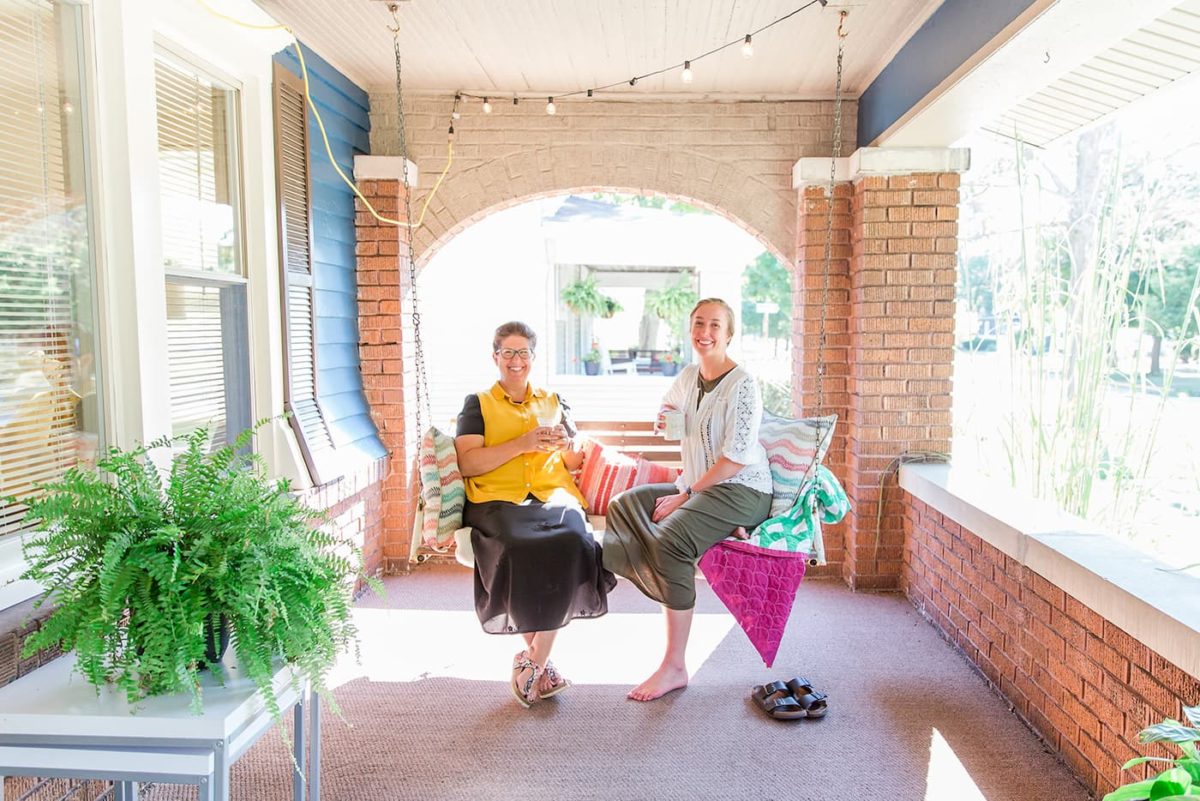Choosing to homeschool your children is a wonderful way to cater to their unique educational needs, foster their creativity, and encourage family bonding. Even with all its charm, navigating the homeschool world can be overwhelming, especially if your family is transitioning from a traditional school setting. Whether you’ve always dreamed of teaching your children at home or are unexpectedly giving it a shot in the wake of the pandemic, check out these practical tips to help make your homeschooling journey a breeze with the Ultimate Weekly Planner.
Create the Perfect Space to Work
Before you start making lesson plans and tackling projects, you must first decide where you want to children to work. Whether you have an entire room to devote to schoolwork or plan on utilizing a multi-purpose area in your home, such as your dining room table, designating a specific space exclusively for homeschooling is beneficial for many reasons, including:
- Staying Organized: School supplies can stay in one place and be easily accessible throughout your lessons. Keeping everything you need tucked away in your school space will also cut down on clutter throughout your home.
- Limiting Distractions: Incorporate the necessities, such as paper, pencils, and a laptop, in your schoolwork area, but leave the rest behind to ensure that your children stay as productive as possible when it’s time to learn.
- Separating Work and Play: When your kids sit down in their homeschool area, they can focus on schoolwork, away from toys and games.
Find an Approach That Works for You
There’s no one “right” way to do homeschooling. One popular motivation for parents to homeschool their children is the ability to create personalized lesson plans based on their children’s individual strengths, weaknesses, needs, and desires. Likewise, they can change their teaching technique, if necessary. For example, one child may understand a subject better by reading about it in a book, while another may need a more hands-on approach. Learning at home also gives parents and children the freedom to work at their own pace. What might get absorbed in a few hours by one child could be something another child needs a few days to grasp. That’s okay. Pay attention to the approach that best suits your children’s needs and go for it. Don’t be afraid to change things up if one technique isn’t working for your family.
Get into a Good Routine
Like adults, kids thrive when they know what to expect. Although you have the freedom to do whatever you please with your children’s school days, creating a routine that you strive to stick to on a daily basis will create a sense of predictability and normalcy for your children. To help everyone stay on task and let them know what comes next, hang clear charts in your homeschool area. Consider letting older children and teenagers help make their own schedules. Would they prefer to do their schoolwork in the morning or afternoon? Do they like doing their favorite or least favorite subjects first? No matter how your family chooses to schedule their days, having a predictable yet flexible schedule is the key to a peaceful and productive learning experience.
Take Advantage of Online Learning Tools
Homeschooling isn’t what it used to be. Now there are countless online resources available right at your fingertips to make learning at home easier than ever. Whether you are looking for free art project ideas to do with your preschooler, videos to reinforce subjects that you’re discussing with your middle schooler, or virtual classes taught by a certified teacher for your high schooler, it’s always a good idea to investigate what online learning tools are available. You may be surprised by the resources that can make homeschooling more enjoyable and effective for your children.
Collaborate with Other Homeschoolers
Just because your children are learning at home doesn’t mean that they can’t socialize, interact, and learn with peers. Connecting with other homeschooling families is a great way to:
- Break up your daily routine.
- Give your children the opportunity to make new friends.
- Give parents a break by taking turns teaching.
- Get ideas of what is working for other families.
If you don’t know any other homeschoolers in your community, don’t worry! There are plenty of ways to meet with others nearby. Look online for Facebook groups, online forums, email chains, conferences, and more.
Don’t Overdo It
Since traditional school days are eight hours long, you may be tempted to stretch your children’s lessons out over extended periods as well. Don’t! Two to four hours of learning is more than enough for children to learn in one day. This, of course, should be broken up with time to eat, bathroom breaks, and opportunities to play outside. Intentionally scheduling time for breaks throughout your children’s school day is important. Not only does it give them something predictable to look forward to, but it also helps them relieve stress that will make it easier for them to focus when they return to their schoolwork.
Have Fun
Learning at home should be enjoyable! If you want to take your child’s schoolwork to the park, skip math entirely one day, or plan a family vacation around something you’re learning together, you have the freedom to do it. Don’t put so much pressure on yourself or your child to perform perfectly every day. Navigating homeschooling can be challenging under the best circumstances, but especially during a pandemic. With this in mind, try to be as flexible as you can when things get stressful, give your children and yourself room to figure things out, and, most importantly, soak in this wonderful phase of life. After all, it won’t last forever.
Stay Organized with the Ultimate Weekly Planner
Don’t underestimate the influence staying well organized can have on your school days. The best way to stay on top of your children’s lesson plans, track what’s working for your family and what’s not, and make sure that no assignment or event gets forgotten is to stay organized with a great planner. With plenty of space to write down commitments on a weekly and monthly basis, keep track of lists, budget your time, and document everyone’s progress, the Ultimate Weekly Planner has everything you need to make homeschooling simple and fun.


